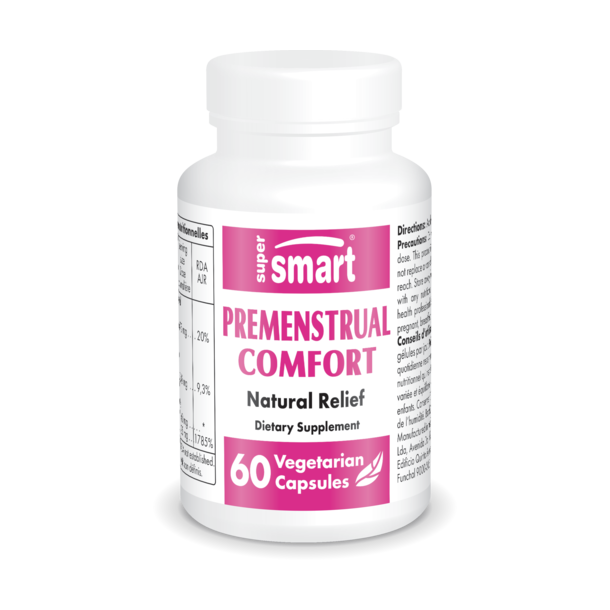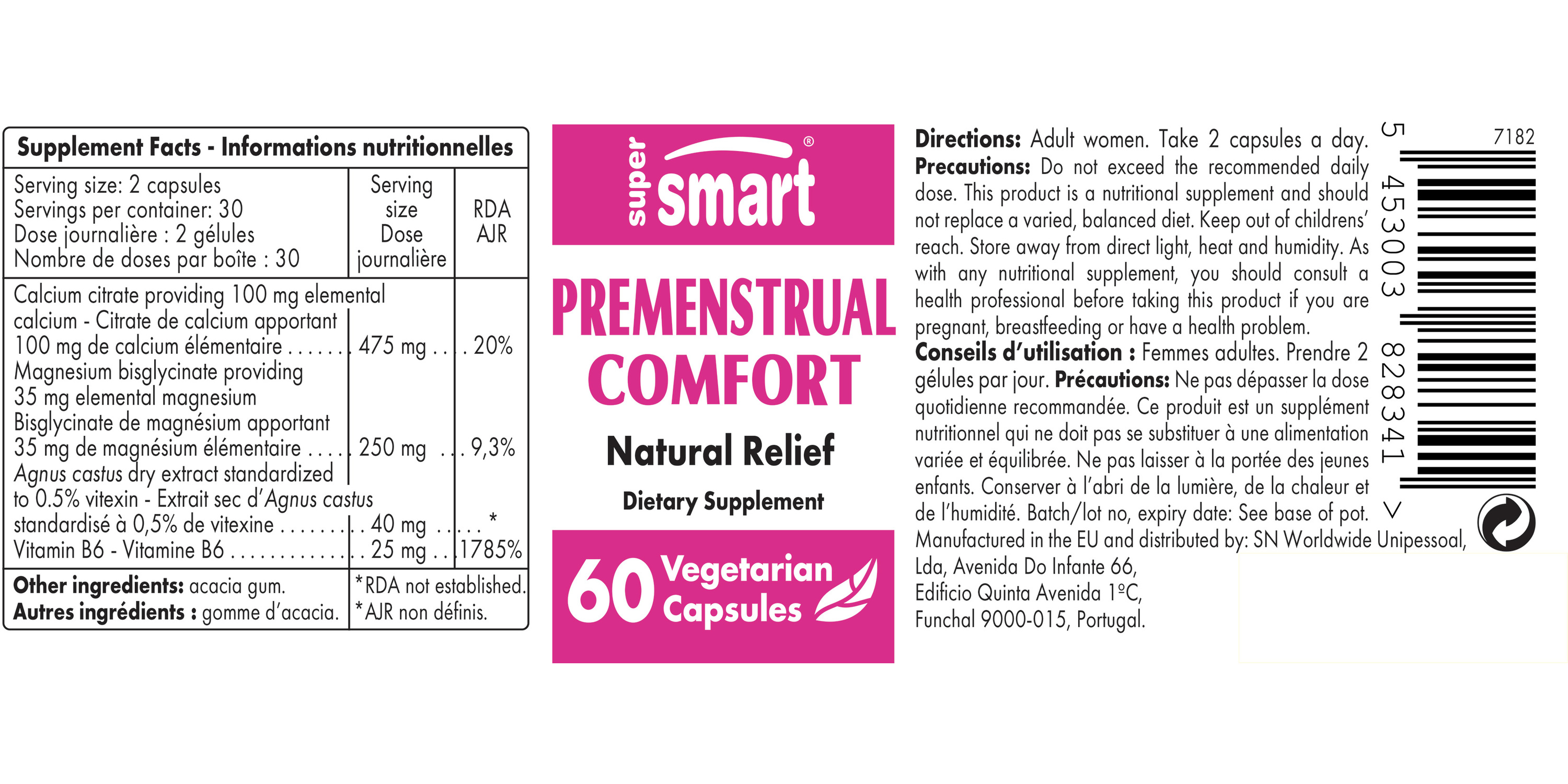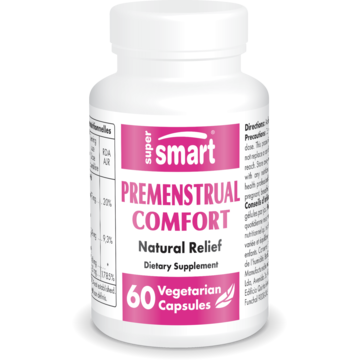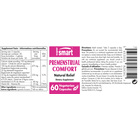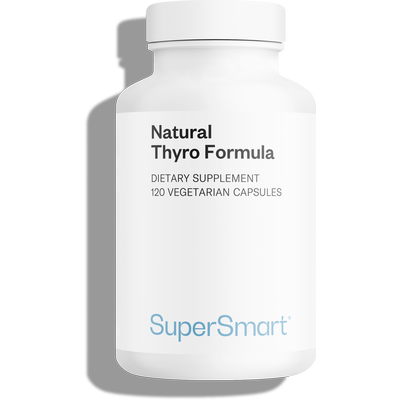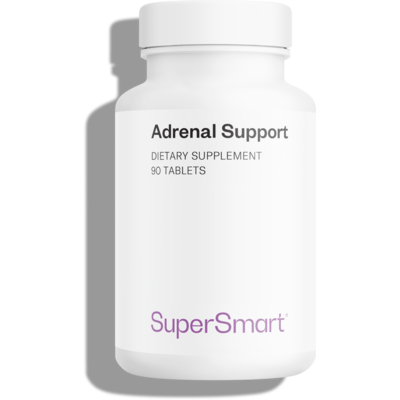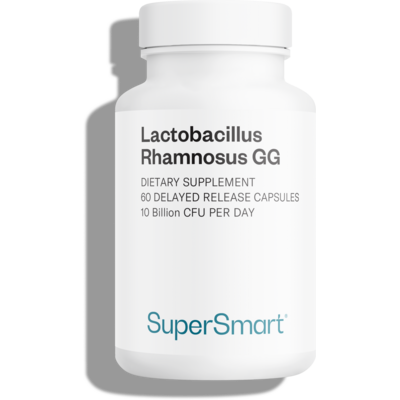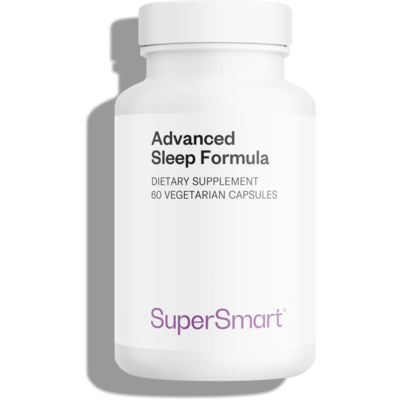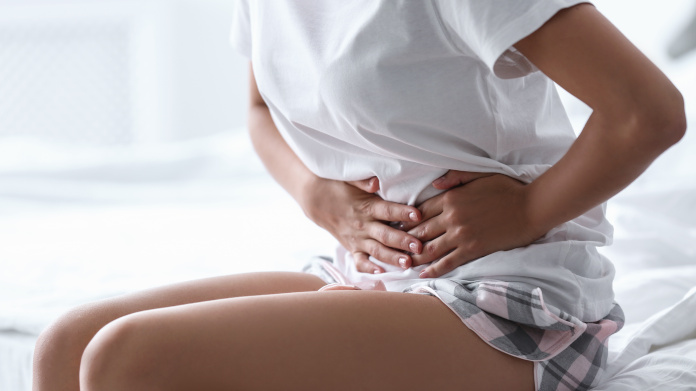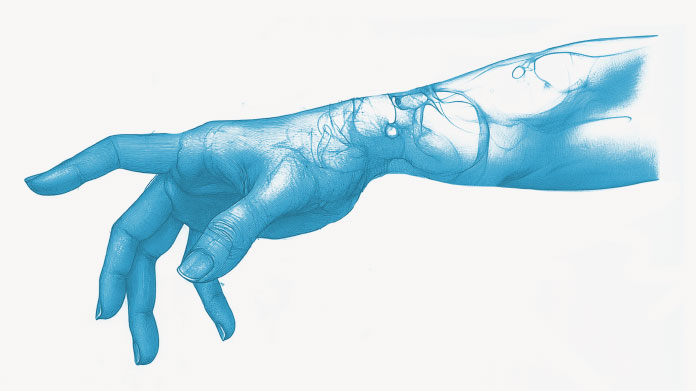Create Your Offer
Our PreMenstrual Comfort dietary supplement combines the best substances identified for relieving premenstrual syndrome (PMS).
PMS is a collection of physical and emotional symptoms experienced by some women before their period: pain, bloating, changes in mood, fatigue, sleep problems, etc. It affects 30 to 40% of women in the West (1).
This natural supplement is part of our women's health and intimate comfort category.
What Does this PMS Supplement Contain?
Our PMS supplement contains 4 compounds:
- A dry extract of chasteberry, or Vitex agnus-castus. Use of this plant as a natural treatment for premenstrual syndrome has been validated by many studies (2-4). Specifically, chasteberry helps regulate levels of prolactin, estrogen, and progesterone (which are often unbalanced in PMS-sufferers). It thus helps both reduce fatigue, bloating, breast tenderness, headaches, irritability, etc., and prevent discomfort before as well as during the menstrual phase. Chasteberry’s efficacy is recognized by the European Medicines Agency, an official agency of the EU. Its most important active principle is vitexin (5). Our supplement is thus standardized to 0.5% vitexin for optimal efficacy.
- Calcium citrate which supports normal neurotransmission and therefore normal production of serotonin (the neurotransmitter associated with mood). This form of calcium has the advantage of being extremely bioavailable and minimizing the risk of intestinal discomfort.
- Magnesium bisglycinate which helps reduce fatigue and supports normal nervous system and psychological function (less agitation, fewer mood swings, etc.). This form of magnesium has also been chosen for its exceptional bioavailability and good gastrointestinal tolerance.
- Vitamin B6 which helps reduce fatigue and supports the normal nervous system and psychological function, as well as regulation of hormone activity, which can be disrupted during the premenstrual period. Severe PMS, for example, is often associated with inadequate levels of progesterone.
What Exactly is Premenstrual Syndrome (PMS)?
Definition of PMS
Premenstrual syndrome (PMS) is the term used for a group of symptoms, recognized relatively recently, which affects women of childbearing age.
It manifests in physical, emotional, and behavioral symptoms, which appear during the luteal phase (the 14 day period following ovulation) and disappear spontaneously at the start of the woman's period.
There is another, more severe, form called premenstrual dysphoric disorder (PMDD). It produces more severe psychiatric symptoms and is believed to affect 2 to 5% of women (6).
The variations in steroid hormones that occur at this point in the menstrual cycle are thought to be the cause of this still poorly-understood disorder, especially the progesterone/estrogen ratio which may, in particular, affect the action of GABA (7), the main inhibitory neurotransmitter of the central nervous system. PMS-related hormone variations may also affect levels of serotonin, another important neurotransmitter which plays a central role in regulating mood, appetite, and sleep.
Symptoms of premenstrual syndrome
There are many potential symptoms of PMS:
- Breast tenderness: sore, sensitive, or painful breasts;
- Uncomfortable abdominal bloating sometimes combined with constipation;
- Irritability, mood problems, tendency towards depression, anxiety;
- High emotional instability: sudden feelings of sadness, hypersensitivity to failure or rejection, feelings of despair, etc.;
- Headaches;
- Sleep problems;
- Excessive fatigue and a marked fall in energy levels;
- Notable loss of appetite, cravings for certain foods, etc.
Typically, symptoms peak just before a period and stop at, or a few days after, the start of menstruation.
How Should PreMenstrual Comfort be taken to Reduce the Symptoms of PMS?
What is the recommended dose for this PMS supplement?
We recommend adults to take 2 capsules a day during the week preceding, and the first 3 days of menstruation. One bottle of PreMenstrual Comfort covers 3 menstrual cycles.
7 additional tips for relieving PMS
Throughout the supplementation period, try to adopt these 7 measures to optimize your relief from PMS:
- Reduce your sugar intake to avoid aggravating inflammation and digestive problems;
- Limit your sodium consumption to reduce water retention and bloating, common PMS symptoms;
- Try not to consume too much caffeine (8) or alcohol, as they can affect mood and sleep quality and exacerbate certain PMS symptoms;
- Avoid smoking for the same reasons (9);
- Try to get back to a healthy weight if you are overweight: women with a BMI above 27.5kg/m2 are at higher risk;
- Reduce your stress levels, as stress is another risk factor for PMS (10);
- Spread your food intake: eating small, balanced meals throughout the day rather than large ones can help maintain consistent energy levels and improve control of diet-related symptoms.
3 Additional Supplements to Take for PMS
Omega-3 and PMS
Alongside PreMenstrual Comfort, you could also supplement with omega-3. As well as being essential for health in general, omega-3 fatty acids have been studied for their potential to reduce the symptoms of PMS (11-12). Ideally, choose an omega-3 supplement with recognized purity and low oxidation (such as Super Omega 3).
Supplement with 5-HTP, the precursor of serotonin
If you suffer from mood problems, you could also opt for a 5-HTP (5-hydroxytryptophan) supplement. This natural regulator of the nervous system is a precursor of serotonin, which is in turn a precursor of melatonin, the sleep hormone (13). 5-HTP supplements are usually produced from the seeds of the African plant Griffonia simplicifolia.
Do not forget about your vaginal flora
To maintain good intimate health, you can also take targeted probiotics. Healthy vaginal flora contains high levels of beneficial microorganisms, such as Lactobacillus rhamnosus, Bifidobacterium lactis and Lactobacillus salivarius (14). You can obtain these probiotics by taking an oral, synergistic formulation (such as Vaginal Health).
WARNINGS
Do not exceed the recommended daily dose. This product is a nutritional supplement and should not be used as a substitute for a varied and balanced diet or a healthy lifestyle.
STORAGE
Store in a cool, dry place away from direct sunlight, heat, and humidity. Keep out of reach of children.
PREGNANCY AND MEDICAL CONDITIONS
If you are pregnant, breastfeeding, or have any medical conditions, consult your healthcare provider before using this product.
SUPPLEMENT INTERACTIONS
Consult your healthcare provider before use, especially if you are taking any medications or other supplements as there may be potential interactions.
Need Help?
Phone Number
+1 (786) 522-3907
From 9 am to 6 pm (EST)

